National
A Push to Address Black-on-Black Violence
By Jazelle Hunt
NNPA Washington Correspondent
WASHINGTON (NNPA) – As cities across the country have mobilized massive street protests over police violence and misconduct, a familiar question has been raised by their opponents: Why does violence within the Black community garner less concern than police violence?
According to crowd-sourced database, Mapping Police Violence, 304 Black people died at the hands of police last year, 101 of them unarmed. But Black offenders were responsible for 90 percent of the nearly 2,500 Black homicide victims in 2013, according to data compiled by the FBI. Between 2002 and 2011, the homicide rate was 6.3 times higher for Blacks than Whites.
Detroit-based community organizer, Yusef Shakur is on a personal mission to end the community violence he once perpetrated. By the age of 19, he had co-founded a gang and was given up to 15 years in prison, where he met his father for the first time. Through positive guidance from his father and a personal decision to do better, Shakur left prison determined to repay his debt directly to his community.
“Urban environments are like a dried-up lake; so people turn on each other out of survival. They don’t know what they’re doing is out of hatred and anger, they take it out on the person that’s next to them, because they don’t know how to take it out on the people downtown in the City Council building,” he says. “They don’t know how to articulate themselves…how to organize a boycott, so you take it out on other folks. Throw in drugs, lack of education, guns all those things are a recipe for genocide.”
Shakur’s organization, Restoring the Neighbor Back to the Hood, seeks to rebuild a sense of community in the “Zone 8” section of Detroit through back-to-school bag giveaways, block parties, survival kits for indigent residents and families, and one-on-one mentorship. Fourteen years after his release, he is an award-winning organizer and remains embedded in his neighborhood as a positive influence, particularly on those who commit the crimes that have made Detroit infamous.
To him, the victims of these crimes are just as important as those slain at the hands of racist authority figures.
“When any [deaths] happen, there’s outrage. We know tons of people who get killed but the media doesn’t talk about it,” Shakur says. “There are folks who do candlelight vigils, folks crying on the floor and things, but there’s no media coverage. But if it’s a high-profile situation, that brings Jesse Jackson and Al Sharpton, then we see the outrage.”
Many of the stories that have become major headlines and have fueled national protests began as local efforts. Trayvon Martin’s murder, for example, only became a major media story after relentless social media campaigning and Sanford, Florida’s “Justice for Trayvon” protests spread across the country – and it still took 44 days of action to secure George Zimmerman’s arrest.
It was Zimmerman’s subsequent acquittal that sparked the Black Lives Matter organization.
“The local is the national. There’s no way that there would be a national conversation about state violence if local residents in Ferguson and St. Louis didn’t take to the streets,” said Patrisse Cullors, a co-founder of the nationwide Black Lives Matter activist network, which began in 2012. “The other piece is, there’s lots of Black people, for the last 40 years, who have been figuring [out] how do we deal with harm inside of our communities.”
While the death toll of “Black-on-Black crime” is distressing, it is worth noting that most crime happens within communities and races. White offenders were responsible for 83 percent of White victims in 2013, and Latino offenders were responsible for 74 percent of Latino victims.
Cullors said that the tug-of-war between community violence and state violence is among the most common criticisms Black Lives Matter receives.
“The focal point is state violence, but that is not the end-all be-all. When myself, Alicia Garza, [and] Opal Tometi created Black Lives Matter, it was never just to talk about law enforcement or vigilantes. It was actually about a broader conversation about anti-Black racism and the impact in our communities,” she explained. “It’s about broadening what state violence means. If someone is homeless…if people in the community aren’t able to have jobs, that’s state violence.”
Shakur lives and works in the crosshairs between state and community violence. Sometimes, he uses the respect he’s earned in his neighborhood by inserting himself to break up fights and conflicts. But he’s also seen a police officer roll up to a group of young boys and hop out of the car to say, “I can’t wait to put you in prison.”
He believes that community violence and police/state violence are different issues that share a link as effects of White supremacy.
“Folks are not using a historical context. When Trayvon Martin gets killed or Michael Brown, et cetera, it reminds you of Emmett Till. It reminds you of your grandfather getting lynched. It reminds you of the reality of being Black in America,” he said. “But the work has to be twofold. It has to be 30 percent police, 70 percent on us. We have to do the work internally to restore interpersonal relationships. If we clean up what we have to clean up, it makes it easier for us to organize against the police, because the police are going to do what they’re going to do.”
Each of the Black Lives Matter co-founders is also a grassroots community organizer.
Cullors is a founding board member of Dignity and Power Now, a Los Angeles-based grassroots group working to empower incarcerated people, their families, and their communities. Alicia Garza has been involved in several grassroots groups across the Bay Area, including People Organized to Win Employment Rights, and the National Domestic Workers Alliance, where she has held leadership roles. Opal Tometi is executive director of the Black Alliance for Just Immigration, a New York-based Black advocacy group.
Cullors believes that community violence is largely a reflection of state violence, both literal and in the form of oppression. For this reason, the two issues, though separate, are not at odds.
“Much of the harm happening in our communities has a lot to do with the trauma of living in a racist, capitalist country. The trauma of not having a job, the trauma of not being able to feed your own children. The trauma of being abandoned at a young age because your family are drug users, the trauma of being in the foster system,” Cullors said.
She added, “Let’s actually deal with the root causes of that trauma. The fight around intra-community violence is a fight about not only the state…but our conversation – it looks like an internal conversation – is about what do we do to take care of ourselves. Where are the spaces that we fight for our communities to have what they need so we don’t harm each other? ‘Black Lives Matter’ means a new way of fighting for freedom.”
Activism
Oakland Post: Week of April 17 – 23, 2024
The printed Weekly Edition of the Oakland Post: Week of April 17 – 23, 2024

To enlarge your view of this issue, use the slider, magnifying glass icon or full page icon in the lower right corner of the browser window. ![]()
Barbara Lee
Congresswoman Barbara Lee Issues Statement on Deaths of Humanitarian Aid Volunteers in Gaza
On April 2, a day after an Israeli airstrike erroneously killed seven employees of World Central Kitchen (WCK), a humanitarian organization delivering aid in the Gaza Strip, a statement was release by Rep. Barbara Lee (D-CA-12). “This is a devastating and avoidable tragedy. My prayers go to the families and loved ones of the selfless members of the World Central Kitchen team whose lives were lost,” said Lee.

By California Black Media
On April 2, a day after an Israeli airstrike erroneously killed seven employees of World Central Kitchen (WCK), a humanitarian organization delivering aid in the Gaza Strip, a statement was release by Rep. Barbara Lee (D-CA-12).
“This is a devastating and avoidable tragedy. My prayers go to the families and loved ones of the selfless members of the World Central Kitchen team whose lives were lost,” said Lee.
The same day, it was confirmed by the organization that the humanitarian aid volunteers were killed in a strike carried out by Israel Defense Forces (IDF). Prior to the incident, members of the team had been travelling in two armored vehicles marked with the WCF logo and they had been coordinating their movements with the IDF. The group had successfully delivered 10 tons of humanitarian food in a deconflicted zone when its convoy was struck.
“This is not only an attack against WCK. This is an attack on humanitarian organizations showing up in the direst situations where food is being used as a weapon of war. This is unforgivable,” said Erin Gore, chief executive officer of World Central Kitchen.
The seven victims included a U.S. citizen as well as others from Australia, Poland, the United Kingdom, Canada, and Palestine.
Lee has been a vocal advocate for a ceasefire in Gaza and has supported actions by President Joe Biden to airdrop humanitarian aid in the area.
“Far too many civilians have lost their lives as a result of Benjamin Netanyahu’s reprehensible military offensive. The U.S. must join with our allies and demand an immediate, permanent ceasefire – it’s long overdue,” Lee said.
Commentary
Commentary: Republican Votes Are Threatening American Democracy
In many ways, it was great that the Iowa Caucuses were on the same day as Martin Luther King Jr. Day. We needed to know the blunt truth. The takeaway message after the Iowa Caucuses where Donald Trump finished more than 30 points in front of Florida Gov. De Santis and former South Carolina Governor Nikki Haley boils down to this: Our democracy is threatened, for real.

By Emil Guillermo
In many ways, it was great that the Iowa Caucuses were on the same day as Martin Luther King Jr. Day.
We needed to know the blunt truth.
The takeaway message after the Iowa Caucuses where Donald Trump finished more than 30 points in front of Florida Gov. De Santis and former South Carolina Governor Nikki Haley boils down to this: Our democracy is threatened, for real.
And to save it will require all hands on deck.
It was strange for Iowans to caucus on MLK day. It had a self-cancelling effect. The day that honored America’s civil rights and anti-discrimination hero was negated by evening.
That’s when one of the least diverse states in the nation let the world know that white Americans absolutely love Donald Trump. No ifs, ands or buts.
No man is above the law? To the majority of his supporters, it seems Trump is.
It’s an anti-democracy loyalty that has spread like a political virus.
No matter what he does, Trump’s their guy. Trump received 51% of caucus-goers votes to beat Florida Gov. Ron DeSantis, who garnered 21.2%, and former South Carolina Gov. Nikki Haley, who got 19.1%.
The Asian flash in the pan Vivek Ramaswamy finished way behind and dropped out. Perhaps to get in the VP line. Don’t count on it.
According to CNN’s entrance polls, when caucus-goers were asked if they were a part of the “MAGA movement,” nearly half — 46% — said yes. More revealing: “Do you think Biden legitimately won in 2020?”
Only 29% said “yes.”
That means an overwhelming 66% said “no,” thus showing the deep roots in Iowa of the “Big Lie,” the belief in a falsehood that Trump was a victim of election theft.
Even more revealing and posing a direct threat to our democracy was the question of whether Trump was fit for the presidency, even if convicted of a crime.
Sixty-five percent said “yes.”
Who says that about anyone of color indicted on 91 criminal felony counts?
Would a BIPOC executive found liable for business fraud in civil court be given a pass?
How about a BIPOC person found liable for sexual assault?
Iowans have debased the phrase, “no man is above the law.” It’s a mindset that would vote in an American dictatorship.
Compare Iowa with voters in Asia last weekend. Taiwan rejected threats from authoritarian Beijing and elected pro-democracy Taiwanese vice president Lai Ching-te as its new president.
Meanwhile, in our country, which supposedly knows a thing or two about democracy, the Iowa caucuses show how Americans feel about authoritarianism.
Some Americans actually like it even more than the Constitution allows.
About the Author
Emil Guillermo is a journalist and commentator. He does a mini-talk show on YouTube.com/@emilamok1.
-

 Activism4 weeks ago
Activism4 weeks agoOakland Post: Week of March 27 – April 2, 2024
-

 #NNPA BlackPress4 weeks ago
#NNPA BlackPress4 weeks agoCOMMENTARY: D.C. Crime Bill Fails to Address Root Causes of Violence and Incarceration
-

 #NNPA BlackPress4 weeks ago
#NNPA BlackPress4 weeks agoFrom Raids to Revelations: The Dark Turn in Sean ‘Diddy’ Combs’ Saga
-

 #NNPA BlackPress4 weeks ago
#NNPA BlackPress4 weeks agoCOMMENTARY: Lady Day and The Lights!
-

 #NNPA BlackPress4 weeks ago
#NNPA BlackPress4 weeks agoMayor, City Council President React to May 31 Closing of Birmingham-Southern College
-

 #NNPA BlackPress4 weeks ago
#NNPA BlackPress4 weeks agoBaltimore Key Bridge Catastrophe: A City’s Heartbreak and a Nation’s Alarm
-

 #NNPA BlackPress4 weeks ago
#NNPA BlackPress4 weeks agoBaltimore’s Key Bridge Struck by Ship, Collapses into Water
-

 #NNPA BlackPress4 weeks ago
#NNPA BlackPress4 weeks agoBeloved Actor and Activist Louis Cameron Gossett Jr. Dies at 87

![Yusef Shakur (center) counseling a young man [Courtesy Photo]](https://www.postnewsgroup.com/wp-content/uploads/2015/06/JazellePhoto-1024x683.jpg)

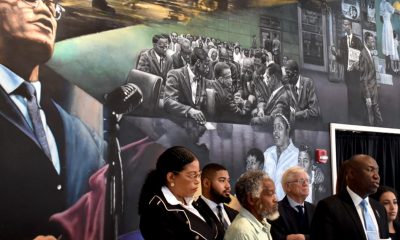

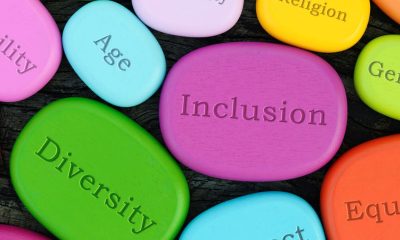

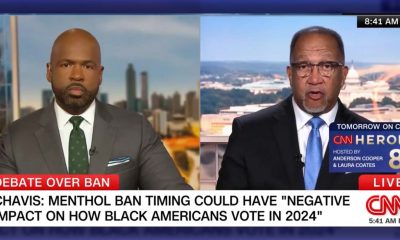

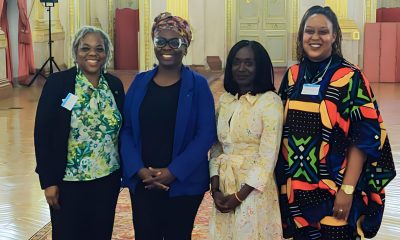

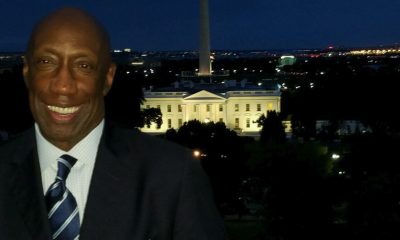

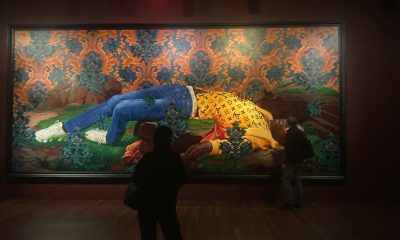









































Pingback: It’s Time to Address Black on Black Crime … Again
Pingback: It’s Time to Address Black on Black Crime … Again | 107.9 Jamz